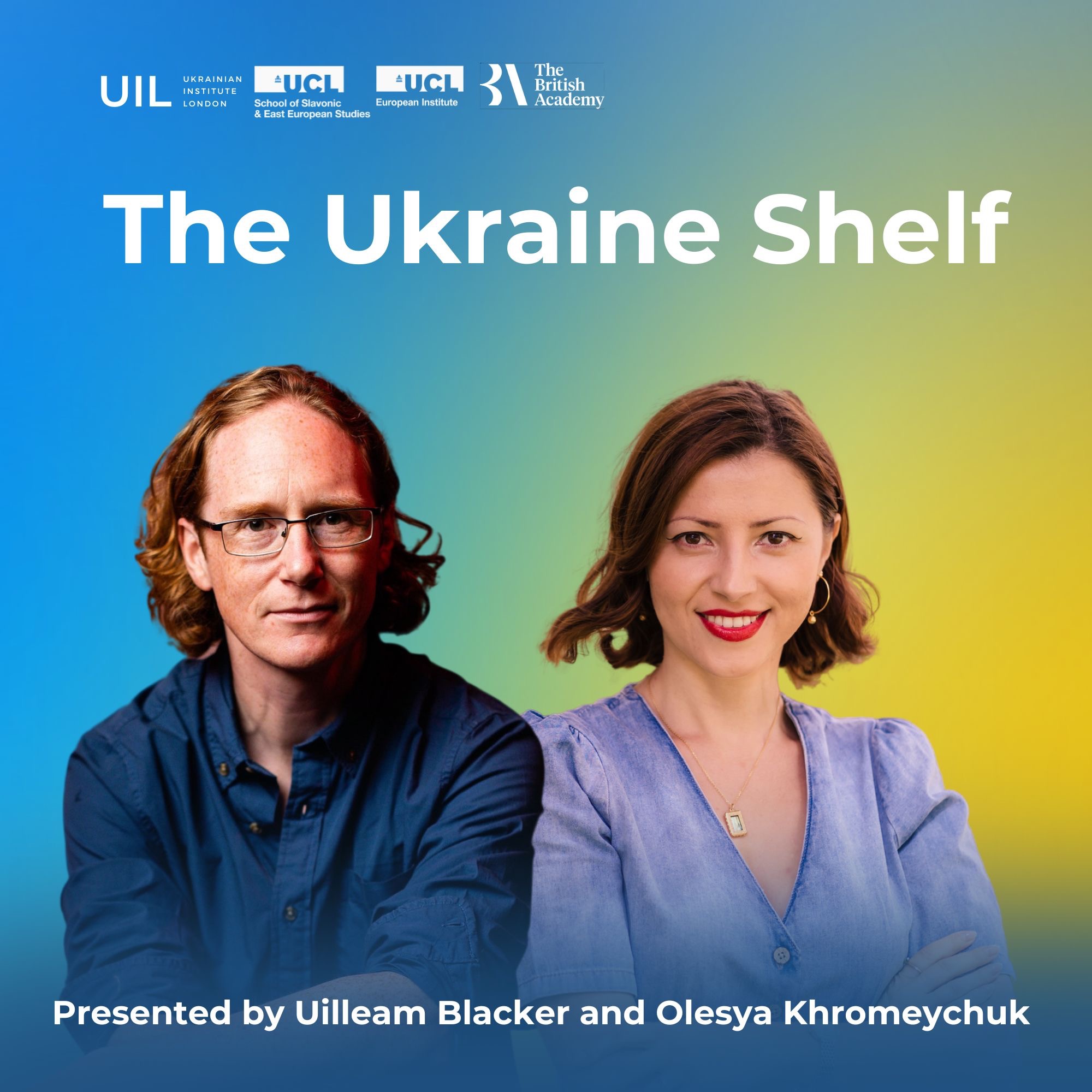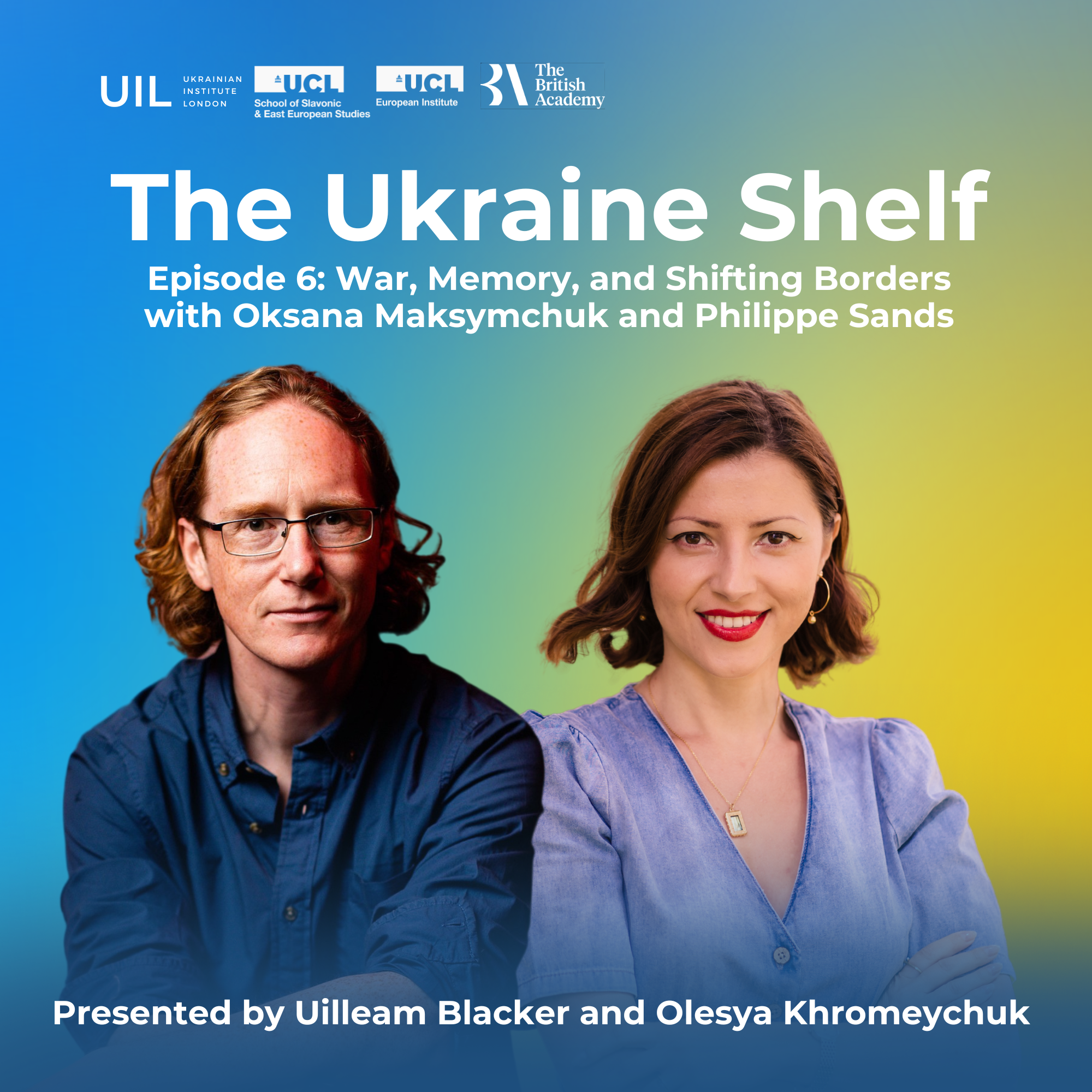The Ukraine Shelf

The Ukraine Shelf
Podcast Description
In this podcast, Dr Olesya Khromeychuk and Dr Uilleam Blacker speak to leading authors, intellectuals, scholars and journalists about Ukraine and its place in the world.Ukraine is at the centre of world events today, and understanding the country’s politics, history and culture has never been more important. The Ukraine Shelf talks to leading authors, intellectuals, scholars and journalists about what we should be reading to understand Ukraine and its place in the world. The Ukraine Shelf is co-sponsored by the UCL European Institute, the Ukrainian Institute London, and the UCL School of Slavonic and East European Studies, with the support of the British Academy.The podcast is presented by Dr Olesya Khromeychuk and Dr Uilleam Blacker.
Podcast Insights
Content Themes
The podcast focuses on topics related to Ukraine's politics, history, and culture, featuring episodes that delve into significant historical events such as the annexation of Crimea and thematic discussions around contemporary literature, with specific episodes like the one discussing Rory Finnin's book Blood of Others exploring the historical context and impact of these events.

In this podcast, Dr Olesya Khromeychuk and Dr Uilleam Blacker speak to leading authors, intellectuals, scholars and journalists about Ukraine and its place in the world.
Ukraine is at the centre of world events today, and understanding the country’s politics, history and culture has never been more important. The Ukraine Shelf talks to leading authors, intellectuals, scholars and journalists about what we should be reading to understand Ukraine and its place in the world. The Ukraine Shelf is co-sponsored by the UCL European Institute, the Ukrainian Institute London, and the UCL School of Slavonic and East European Studies, with the support of the British Academy.
The podcast is presented by Dr Olesya Khromeychuk and Dr Uilleam Blacker.
How do we make sense of war, shifting borders, and forced displacement? How can we remember and speak about these things, and how can literature act as a witness, perhaps even bring a sense of justice? And what lessons can we draw from the tumultuous history of Ukraine and Europe to help us understand what is happening today? This special edition of the Ukraine Shelf podcast featuring poet Oksana Maksymchuk and international lawyer and author Philippe Sands was recorded live at the Edinburgh International Book Festival. The episode is hosted by the podcast’s creators Olesya Khromeychuk (author The Death of a Soldier Told By His Sister and director of the Ukraine Institute London) and literary translator and Ukraine scholar, Uilleam Blacker. Books discussed: Oksana Maksymchuk, Still City (Carcanet, 2025) Philippe Sands, East West Street (Weidenfeld and Nicholson, 2016) and 38 Londres Street (Weidenfeld and Nicholson, 2025) Guest recommendations: Natalia Vorozhbyt, Bad Roads, translated by Sasha Dugdale (Nick Hern Books, 2017) Józef Wittlin and Philippe Sands, City of Lions: A Portrait of a City in Two Acts: Lviv Then and Now (Pushkin Press, 2023) (Wittlin’s is essay translated by Antonia Lloyd-Jones).

Disclaimer
This podcast’s information is provided for general reference and was obtained from publicly accessible sources. The Podcast Collaborative neither produces nor verifies the content, accuracy, or suitability of this podcast. Views and opinions belong solely to the podcast creators and guests.
For a complete disclaimer, please see our Full Disclaimer on the archive page. The Podcast Collaborative bears no responsibility for the podcast’s themes, language, or overall content. Listener discretion is advised. Read our Terms of Use and Privacy Policy for more details.